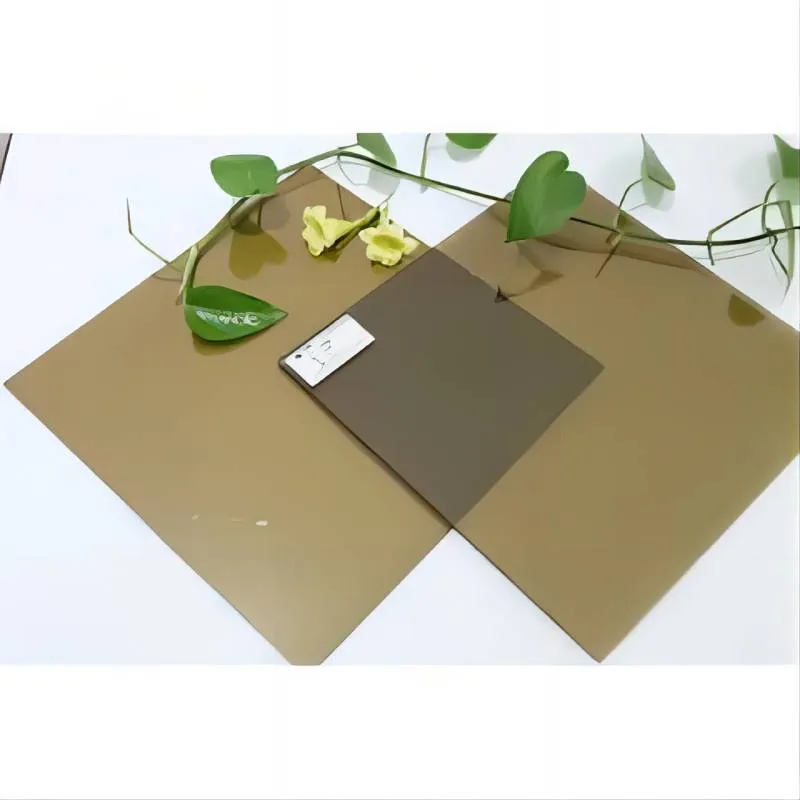The Significance of 2mm Float Glass in Modern Applications
Float glass, a widely utilized type of glass, is produced through a unique manufacturing process that results in a smooth, uniform surface. One of the most common thicknesses for float glass is 2mm. Though it may seem thin, 2mm float glass plays a vital role in various applications across multiple industries, from construction to decorative design.
Understanding Float Glass
The production of float glass involves pouring molten glass onto a bed of molten tin. This process allows the glass to spread out evenly and form a flat surface. Once it cools and solidifies, the glass is cut into sheets of desired thickness. The 2mm thickness is particularly popular due to its lightweight nature and flexibility, making it suitable for numerous applications while maintaining structural integrity.
Applications in Construction
In the construction industry, 2mm float glass is often used in the design of windows and interior partitions. Its thin nature allows for the creation of lightweight structures without compromising light transmission. Buildings utilize this product to enhance energy efficiency while providing natural lighting. Architects appreciate the aesthetic appeal of large glass panels, and the 2mm thickness helps in creating sleek and modern designs.
Furthermore, 2mm float glass is often utilized in the manufacturing of curtain walls, which are non-structural outer coverings of buildings. These walls allow for expansive views and can significantly enhance a building's appearance. In addition, the use of float glass can minimize the need for heavy framing and reduce the overall weight of the building structure, which is crucial for seismic and high-wind regions.
Transportation and Signage
The automotive industry also benefits from 2mm float glass. It is frequently used in the manufacturing of mirrors and small windows in vehicles. The lightweight properties of this thickness make it ideal for applications where reducing weight is essential for fuel efficiency. Furthermore, 2mm glass is employed in vehicle signage and display panels, contributing to both functionality and safety.
2mm float glass
In addition to transportation, 2mm float glass finds its place in signage. Retailers and businesses use it for illuminated signs, giving a clear view of their advertisement while being delicate enough to match different design preferences. Its frameless appearance when used in signs provides a modern touch, making it appealing to businesses looking to attract customers.
Decorative Uses
Beyond functional applications, 2mm float glass is frequently used in decorative items. Its clarity and smooth surface make it ideal for picture framing and crafting glass-based art. Artists and designers often prefer float glass for its ability to enhance colors and details in artwork while providing a protective barrier. In interior design, 2mm glass is used in various items, such as tabletops, shelves, and display cases. It adds an elegant touch while maintaining a minimalist appearance that is increasingly favored in contemporary aesthetics.
Challenges and Considerations
Despite its versatility, there are challenges associated with using 2mm float glass. Due to its thinness, it is more susceptible to breakage compared to thicker variants. Therefore, careful handling and installation are crucial. Moreover, when implementing this kind of glass in structural applications, it’s essential to consider the support framework and materials around it to ensure safety and durability.
Sustainability and Future Directions
In the context of sustainability, float glass is recyclable. The 2mm version contributes to eco-friendly construction practices, as recycled glass can be reprocessed and used to create new glass products. The industry's shift toward sustainable materials presents an exciting future for float glass, including advances in energy-efficient production methods.
In conclusion, 2mm float glass, despite its thinness, is an indispensable material in a variety of applications. Its unique properties support its ongoing use in construction, automotive, and decorative industries. As technology evolves, the future of 2mm float glass holds promise, paving the way for innovative applications and sustainable practices. The robust benefits it offers highlight the crucial role that float glass plays in modern architecture and design.
 Afrikaans
Afrikaans  Albanian
Albanian  Amharic
Amharic  Arabic
Arabic  Armenian
Armenian  Azerbaijani
Azerbaijani  Basque
Basque  Belarusian
Belarusian  Bengali
Bengali  Bosnian
Bosnian  Bulgarian
Bulgarian  Catalan
Catalan  Cebuano
Cebuano  Corsican
Corsican  Croatian
Croatian  Czech
Czech  Danish
Danish  Dutch
Dutch  English
English  Esperanto
Esperanto  Estonian
Estonian  Finnish
Finnish  French
French  Frisian
Frisian  Galician
Galician  Georgian
Georgian  German
German  Greek
Greek  Gujarati
Gujarati  Haitian Creole
Haitian Creole  hausa
hausa  hawaiian
hawaiian  Hebrew
Hebrew  Hindi
Hindi  Miao
Miao  Hungarian
Hungarian  Icelandic
Icelandic  igbo
igbo  Indonesian
Indonesian  irish
irish  Italian
Italian  Japanese
Japanese  Javanese
Javanese  Kannada
Kannada  kazakh
kazakh  Khmer
Khmer  Rwandese
Rwandese  Korean
Korean  Kurdish
Kurdish  Kyrgyz
Kyrgyz  Lao
Lao  Latin
Latin  Latvian
Latvian  Lithuanian
Lithuanian  Luxembourgish
Luxembourgish  Macedonian
Macedonian  Malgashi
Malgashi  Malay
Malay  Malayalam
Malayalam  Maltese
Maltese  Maori
Maori  Marathi
Marathi  Mongolian
Mongolian  Myanmar
Myanmar  Nepali
Nepali  Norwegian
Norwegian  Norwegian
Norwegian  Occitan
Occitan  Pashto
Pashto  Persian
Persian  Polish
Polish  Portuguese
Portuguese  Punjabi
Punjabi  Romanian
Romanian  Russian
Russian  Samoan
Samoan  Scottish Gaelic
Scottish Gaelic  Serbian
Serbian  Sesotho
Sesotho  Shona
Shona  Sindhi
Sindhi  Sinhala
Sinhala  Slovak
Slovak  Slovenian
Slovenian  Somali
Somali  Spanish
Spanish  Sundanese
Sundanese  Swahili
Swahili  Swedish
Swedish  Tagalog
Tagalog  Tajik
Tajik  Tamil
Tamil  Tatar
Tatar  Telugu
Telugu  Thai
Thai  Turkish
Turkish  Turkmen
Turkmen  Ukrainian
Ukrainian  Urdu
Urdu  Uighur
Uighur  Uzbek
Uzbek  Vietnamese
Vietnamese  Welsh
Welsh  Bantu
Bantu  Yiddish
Yiddish  Yoruba
Yoruba  Zulu
Zulu 

